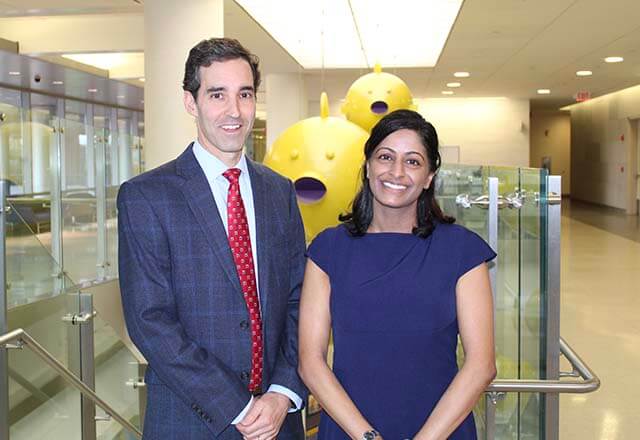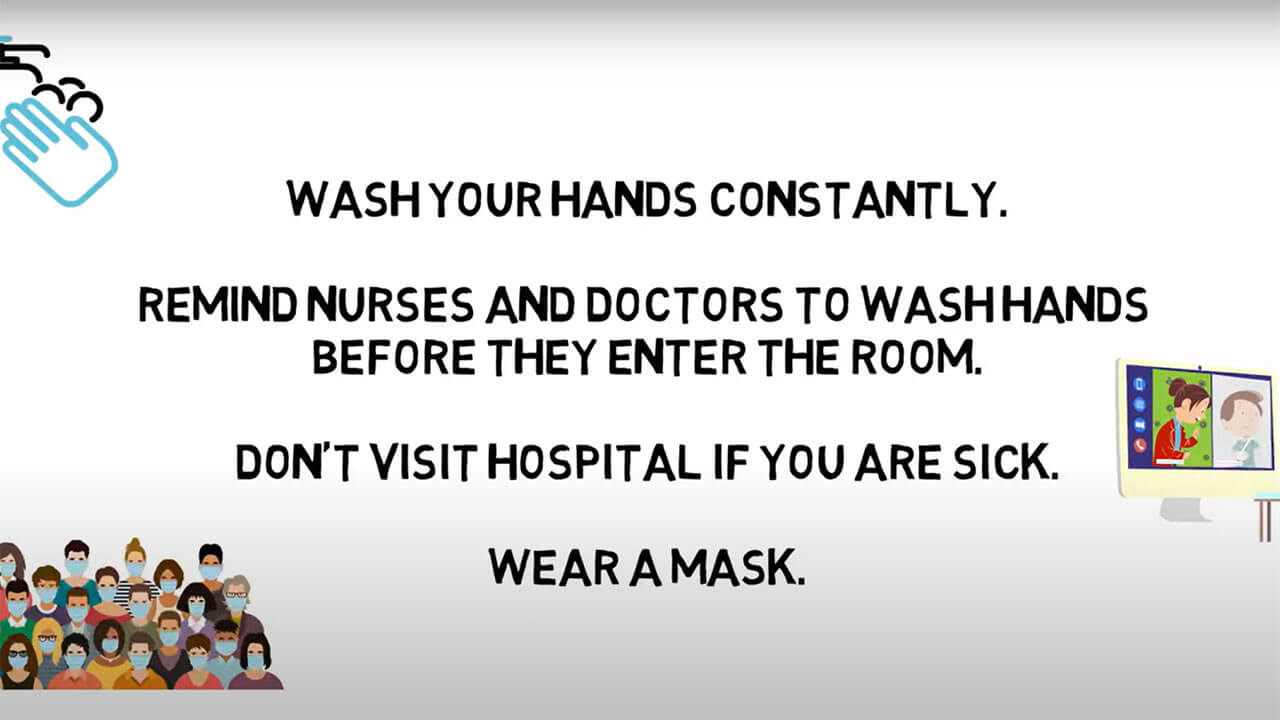Project PROTect
The mission of Project PROTect (Preventing Antibiotic Resistance, Organism Transmission and Health Care-Associated Infections in Children) is to guard hospitalized children from antibiotic-resistant bacteria and health care-associated infections.
 Dr. Aaron Milstone and Dr. Pranita Tamma.
Dr. Aaron Milstone and Dr. Pranita Tamma.The Need
On any given day, roughly one in 25 hospitalized patients has a health care-associated infection. Children are particularly susceptible to hospital-acquired infections. Urgent action is needed to prevent resistance to new antibiotics and limit the spread of resistance that already exists.
The PROTect Model
Led by Aaron Milstone and Pranita Tamma, Project PROTect comprises two teams: the Pediatric Infection Prevention Team and the Pediatric Antimicrobial Stewardship Team. Project PROTect involves core faculty members and clinical researchers in the Johns Hopkins Children’s Center Division of Pediatric Infectious Diseases and Division of Quality and Safety, and the Johns Hopkins Armstrong Institute for Patient Safety and Quality. The project uses an interdisciplinary approach to reduce infection risk for hospitalized children.
- 2 million: In the U.S., 2 million people are infected each year with antibiotic-resistant bacteria.
- 23,000: Each year in the U.S., 23,000 people die from antibiotic-resistant bacterial infections.
- 20 percent: Of hospitalized children who receive antibiotics, 20 percent have adverse events.
- 4 percent: Of children in hospitals, 4 percent develop an infection.
The Leaders
Aaron Milstone is a professor of pediatric infectious disease and epidemiology at the Johns Hopkins University School of Medicine. He is an associate hospital epidemiologist at The Johns Hopkins Hospital and the pediatric lead for infection prevention for the Johns Hopkins Health System.
Milstone’s research focuses on advancing the science of infection control through studies of the prevalence and transmission of multidrug-resistant organisms (MDROs) and interventions to reduce the spread of MDROs. His seminal work was a study to measure the impact of the antiseptic chlorhexidine in preventing hospital-acquired infections. He is now leading the 15-hospital BrighT STAR Collaborative to improve diagnosis of children at risk for bloodstream infections and to reduce inappropriate antibiotic use.
Pranita Tamma is an associate professor of pediatrics in the Division of Infectious Diseases. She is also the founder and director of the Pediatric Antimicrobial Stewardship Program at the Johns Hopkins University School of Medicine. She is currently leading a program educating clinicians across 1,500 hospitals, nursing homes and outpatient clinics to improve prescribing of antibiotics.
Tamma’s research focuses on clinical outcomes related to antibiotic administration strategies for both children and adults. She is particularly interested in improving diagnostics and therapeutic choices for infections caused by multidrug-resistant Gram-negative organisms — infections with these organisms lead to considerable morbidity and mortality.
"My daughter was a patient at Johns Hopkins Children’s Center a few years ago and suffered a life-threatening health care-associated bloodstream infection. Now I am thrilled to be able to volunteer my time by participating in the Herculean efforts of the infection prevention and antimicrobial stewardship teams to protect all of the children at Johns Hopkins Children’s Center.”
—Stefanie: patient mom, Pediatric Advisory Council member and Project PROTect advocate
The Teams
The Pediatric Infection Prevention Team leads initiatives to prevent patient harm while creating a welcoming, safe environment for patients and their families. The Pediatric Antimicrobial Stewardship Team works to ensure that all children who receive antibiotics get the right drug, at the right dose, and for the right duration.
Keeping Hospitalized Kids Safe From Infection
Parents and caregivers can keep their hospitalized children safe from infection in these simple ways.
Contact
For more information or to get involved, please contact the Johns Hopkins Children’s Center Office of Development:
Phone: 410-361-6493 | Email: [email protected]


